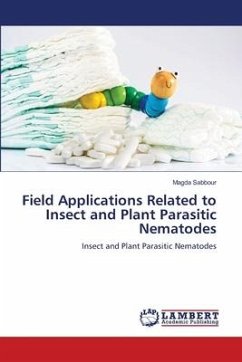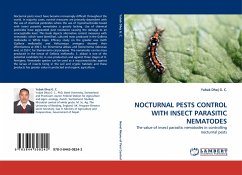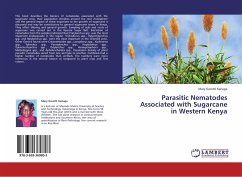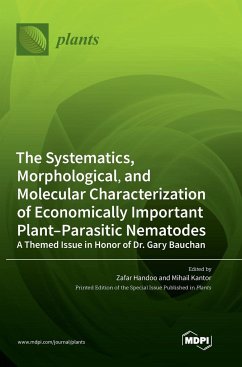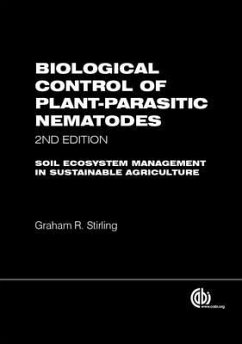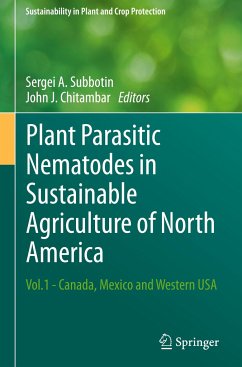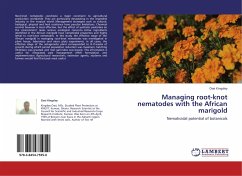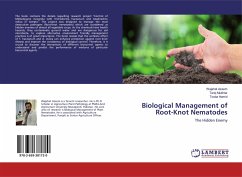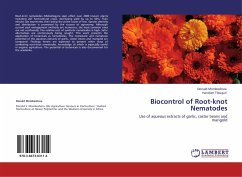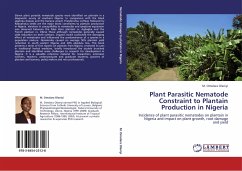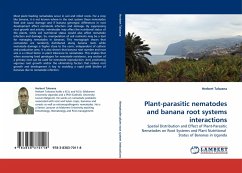
Plant-parasitic nematodes and banana root systems interactions
Spatial Distribution and Effect of Plant-Parasitic Nematodes on Root Systems and Plant Nutritional Status of Bananas in Uganda
Versandkostenfrei!
Versandfertig in 6-10 Tagen
45,99 €
inkl. MwSt.

PAYBACK Punkte
23 °P sammeln!
Most plant feeding nematodes occur in soil and infect roots. For a crop like banana, it is not known where in the root system these nematodes feed and cause damage and if banana genotypic differences in root development affect nematode infection and damage. By suppressing root growth and activity, nematodes may affect the nutritional status of the plants, while soil nutritional status would also affect nematode infection and damage. So, manipulation of soil nutrients may be a tool for managing nematodes in bananas. This monograph shows that nematodes are randomly distributed along banana roots...
Most plant feeding nematodes occur in soil and infect roots. For a crop like banana, it is not known where in the root system these nematodes feed and cause damage and if banana genotypic differences in root development affect nematode infection and damage. By suppressing root growth and activity, nematodes may affect the nutritional status of the plants, while soil nutritional status would also affect nematode infection and damage. So, manipulation of soil nutrients may be a tool for managing nematodes in bananas. This monograph shows that nematodes are randomly distributed along banana roots while nematode damage is higher close to the corm, independent of cultivar and production area. It is also shown that banana root number and root size is a critical factor in plant tolerance to nematodes. This implies that when assessing bred genotypes for nematode resistance, any section of a primary root can be used for nematode reproduction. And, promoting vigorous root growth and/or theeliminating factors that reduce root growth and development is key to avoiding a rapid yield decline of bananas due to nematode infection.



